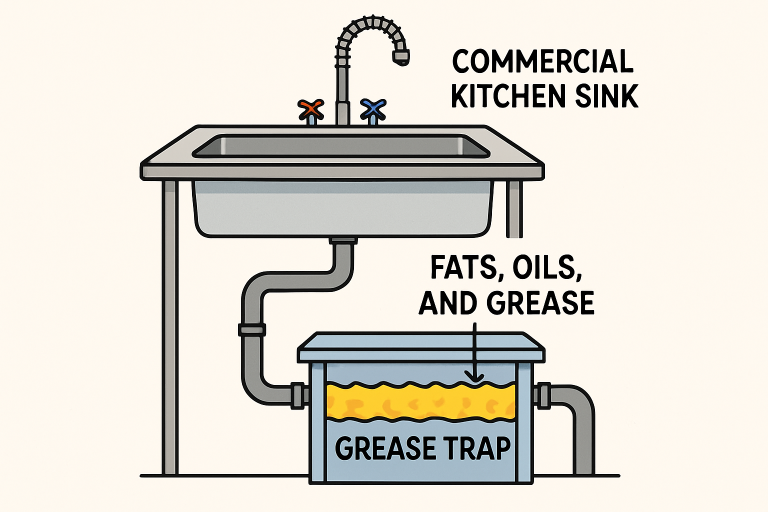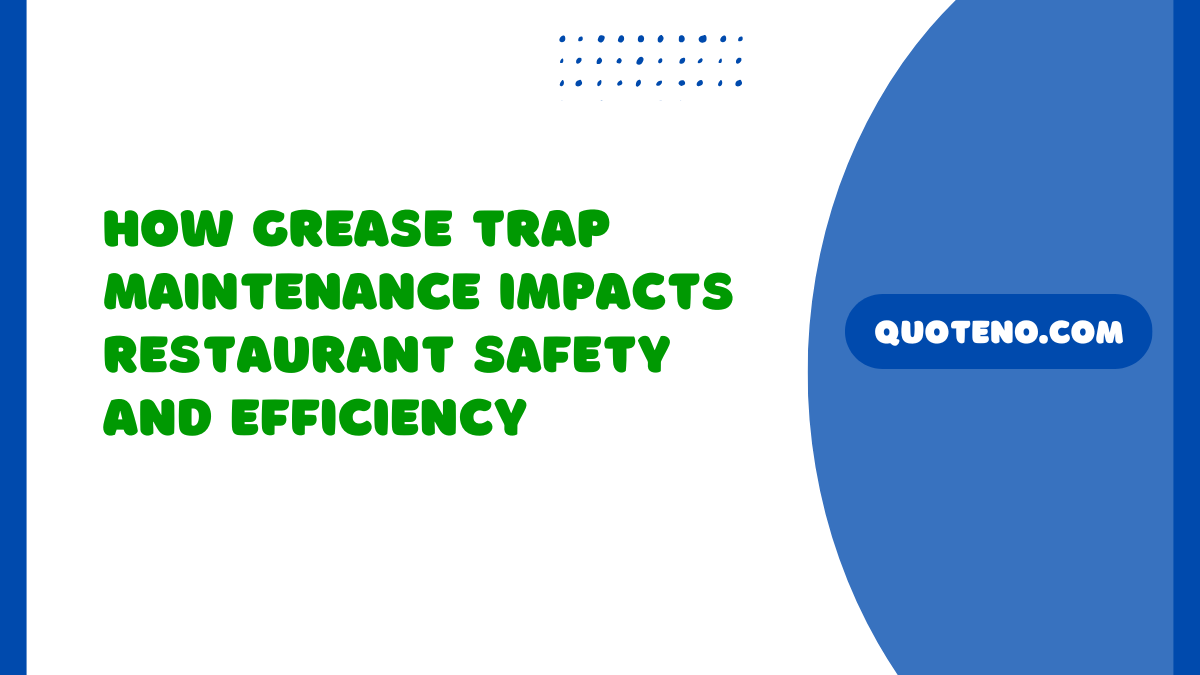Maintaining grease traps is essential for every restaurant aiming to create a clean, efficient, and compliant operation. Whether you run a small café or a large commercial kitchen, ensuring regular grease trap upkeep directly influences safety standards and operational success. For local food service businesses seeking reliable solutions, Denver Grease Trap Cleaning services provide expert support that helps prevent everyday plumbing and safety pitfalls.
When grease trap maintenance is overlooked, the risks escalate quickly. From kitchen slowdowns to costly emergencies and regulatory penalties, restaurants can find themselves facing hurdles that are entirely preventable. Proactive cleaning supports a smooth kitchen flow and demonstrates a clear commitment to safeguarding your community’s health and environment.
Industry data and health department reports consistently highlight the role of grease traps in ensuring restaurant compliance and customer satisfaction. Understanding the full impact of regular maintenance sets the stage for a healthier workplace and stronger relationships with guests, regulators, and the community. For more on food safety standards, review articles from Food Safety News.
Table of Contents
Key Takeaways
- Regular grease trap maintenance prevents plumbing issues and ensures smooth kitchen operations.
- Proper upkeep helps avoid health code violations and protects the environment.
- Consistent cleaning reduces operational disruptions and maintains a restaurant’s reputation.
Preventing Plumbing Issues
Fats, oils, and grease (commonly called FOG) are byproducts of nearly every kitchen operation, from prepping fried foods to washing dishes. If not properly trapped and removed, FOG gradually accumulates inside plumbing lines, causing blockages that slow down drainage or lead to complete backups. This can result in operational stoppages, unsanitary work areas, or plumbing emergencies requiring expensive remedial action.

You ensure water flows freely through drains and pipes by systematically cleaning and servicing grease traps. This protects your kitchen from potential shutdowns and extends the lifespan of your plumbing infrastructure, minimizing unexpected disruptions and costly repairs.
Avoiding Health Code Violations
City and state health departments enforce stringent standards regarding grease management. Inspections routinely check grease traps for excessive buildup, proper installation, and maintenance logs. Restaurants found in violation may incur penalties, forced closures, or negative press—all of which could be avoided with a diligent service schedule.
Maintaining clean grease traps is a clear sign to health inspectors that your establishment values cleanliness and compliance. This reduces the risk of fines and official notices and provides peace of mind to your team and clientele. According to the Centers for Disease Control and Prevention (CDC), frequent maintenance of kitchen equipment, including grease traps, lowers the risk of foodborne illness outbreaks.
Protecting the Environment
Beyond the restaurant’s doors, neglected grease traps can significantly harm local ecosystems. Overflowing grease can seep into municipal sewer systems, causing blockages that lead to untreated waste entering waterways. This contamination endangers fish, birds, and plants, possibly triggering stricter government oversight or lawsuits.
Routine grease trap cleaning ensures that only clean water is discharged into the sewer, supporting municipal treatment facilities and the broader commitment to sustainable practices. Restaurants willing to uphold these standards position themselves as responsible and environmentally conscious community members.
Reducing Operational Disruptions
Kitchen operations depend on reliable, unobstructed infrastructure. Grease trap issues—from slow drainage to overflows—can halt service, damage kitchen equipment, and force temporary closures. These disruptions cost time and money, particularly in high-volume settings where every delay impacts the bottom line.
Establishing a regular grease trap cleaning protocol minimizes interruptions, allowing managers and staff to concentrate on food quality and customer service instead of preventable emergencies. The result is a smoother workflow and more predictable business hours, underscoring the link between maintenance and operational peace of mind.
Maintaining Reputation
Word spreads quickly in the tightly woven fabric of the restaurant scene. Foul odors, dirty restrooms, and visible plumbing problems can undermine the best-reviewed menus. Customers expect a high standard of cleanliness, and anything less can inspire negative reviews on platforms like Yelp or Google, tarnishing your reputation and reducing repeat business.
Investing in routine grease trap maintenance quietly reassures guests that hygiene and professionalism are woven into your brand’s promise. Satisfied customers become loyal patrons and are more likely to recommend your establishment to others, helping your business grow sustainably in a competitive market.
Best Practices for Grease Trap Maintenance
Schedule Regular Cleanings
Grease trap cleaning should be planned based on the volume and type of food service for optimal performance. Engaging professional cleaning services guarantees compliance and thorough removal of accumulated grease.
Educate Kitchen Staff
Train your team to scrape food scraps and minimize the amount of FOG entering drains. Proper disposal practices significantly reduce the burden on your grease trap and improve its effectiveness.
Keep Maintenance Records
Detailed logs of service dates and maintenance actions prove compliance during inspections and can help diagnose recurring issues before they become emergencies.
Proactive Monitoring
Regularly observing the performance of your grease trap helps identify minor issues early. Prompt attention prevents small concerns from escalating into major problems.
By embracing these practical steps, restaurants can operate efficiently, protect public health, minimize environmental impacts, and uphold the reputation that keeps customers returning.
Proper upkeep of grease traps safeguards safety and efficiency in food establishments. Consistent maintenance prevents blockages, foul odors, and fire risks and supports smooth operations and regulatory compliance. Restaurants that prioritize this essential task protect their staff, customers, and reputation while ensuring long-term cost savings and sustainability.
- Top Group Camping Activities to Enhance Your Outdoor Experience - February 26, 2026
- How Modern Orthodontics Is Changing Smiles for All Ages - February 26, 2026
- How Personalized Weight Loss Plans Are Transforming Lives - February 26, 2026

